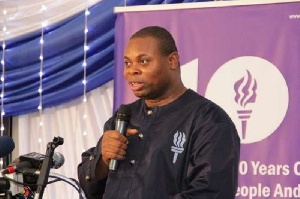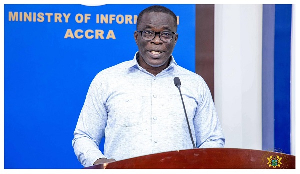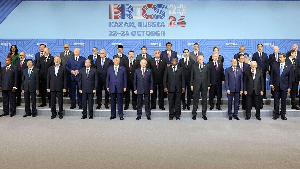1. Your Party’s Manifesto Pledge: Corporate taxes shall be reduced from 25% to 20% in an NPP administration. Capital equipment will be tax free. VAT on imported medicines not produced in Ghana to be abolished. VAT on domestic airline tickets to be abolished. VAT on SMEs to come down from 17.5% to 3%.
QUESTIONS: (i) Could you please clarify whether your proposed corporate income tax rate will be a flat tax rate that cuts across all sectors? Mind you, currently, there are sectors that enjoy lower tax rates than the 25%. Hotels, financial institutions and companies listed on the stock exchange, for instance.
(ii) Does the new government intend to remove the incentive differential and tax these companies at the flat rate of 20%?
(iii) What about non-traditional exporters who are taxed at only 8%?
(iv) In 2010, the government revised the mining tax rate back to 35% after the NPP had brought it down to 25% in 2006. Will the mining sector be affected by the new flat tax rate?
(v) Isn’t it likely that there would be a short-term drop in revenue, and what current government bills will the new government drop in the event of such a short-term drop?
(vi) In line with the above, is the new government likely to revise the ECF with the IMF? If so, which aspects of the deal will be revised?
2. Your Party’s Manifesto Pledge: 70% of taxpayer funded procurement shall be executed by local companies.
QUESTIONS: (i) Can you please explain how this local content policy will do better given the history of local content policies in this country?
3. Your Party’s Manifesto Pledge: A ‘fiscal council’ will be set up and anchored in law to oversee medium-term fiscal accountability. You said you shall assemble a team of experts with diverse experience and skills to address the issue of unemployment through superior economic management.
QUESTIONS: The fiscal Authorities in Ghana are nominally regulated by Act 335 and Act 654 and their work is impacted by parliamentary oversight and various legal audit frameworks.
(i) Is your government promising to revive the fiscal responsibility law promised but not delivered in 2007?
(ii) How will this assembly of experts outperform the old regimes of presidential advisory councils and economic management teams?
4. Your Party’s Manifesto Pledge: $275M shall be taken from a projected $1.6BN capital expenditure budget to be handed over to constituencies. Furthermore, three authorities – Northern Development Authority, Middle Belt Development Authority and Coastal Development Authority – shall be created to facilitate broad-based national development.
QUESTIONS: In the past a number of these authorities have been created for Northern Ghana and parts of the coastal belt. Additional details are needed as to how this new idea will differ from previous ones.
(i) What administrative machinery would be put in place in constituencies to spend and oversee the allocated money?
(ii) How do you hope not to duplicate the activities of the district assemblies leading to additional overhead and operational friction, especially given their promise to see DCEs and MMCEs elected within their first term?
5. Your Party’s Manifesto Pledge: A distributed solar program will be put in place to convert all government facilities to use solar power.
QUESTIONS: This is another variant of the use of public expenditure to drive specific industrial outcomes, in this case by providing a shot in the arm to the local renewables energy industry.
(i)Has this decision to opt for a particular energy source been based on rigorous cost comparisons across all available sources or just merely satisfying clean energy demands?
(ii) Don’t you think gas-fired, grid, power would be cheaper than solar over the medium-term? Cost, at this stage of our national development, should be the primary driver of decision making. General Questions:
6. Growth in the past fiscal year was hinged on expansion of output from the Oil &Gas sector.
With projected price to oscillate 60 USD per barrel by close of 2017, cut back in capex for players in the industry such as Tullow, absence of plans to replace equipment such as FPSO (which frequently breaks down), and challenges confronting production of crude, it is difficult to see how growth will be hinged on this sector.
Growth cannot be solely "hinged" on this sector! What are the plans for (i) building the proposed liquefied natural gas infrastructure
(ii) ramping up production of crude oil at TOR to full capacity of 60k barrels per day and
(iii) construction of a new 100k barrels per day production capacity refinery at TOR, in view of increasing government revenue via taxes from the industry? Will the hedging programme commenced under K. Duffour be restored?
7. The borrowing calendar for the first quarter is suggestive of an additional GHS2billion that will be issued by government (GHS17.4billion total issues with GHS15billion used to refinance maturing debts).
This does not appear to be a departure from the previous finance minister's orientation for meeting financing requirements of government and building the required buffers for sound liquidity management.
Any reason for this? what should be the expectation of other stakeholders over the remaining quarters of 2017 in view proposed tax cuts?
8. What are the immediate strategies for the financial industry?
The recent constraint of cost and access to credit, to key sectors of the Ghanaian economy is quite profound! This should be subsumed under a broader private sector development strategy!
What are the government's plans for supporting the financial industry to ensure its high Non-Performing Loans are significantly reduced and the industry is able to support the informal sector of the economy?
Business News of Friday, 20 January 2017
Source: Imani Center for Policy & Education

















